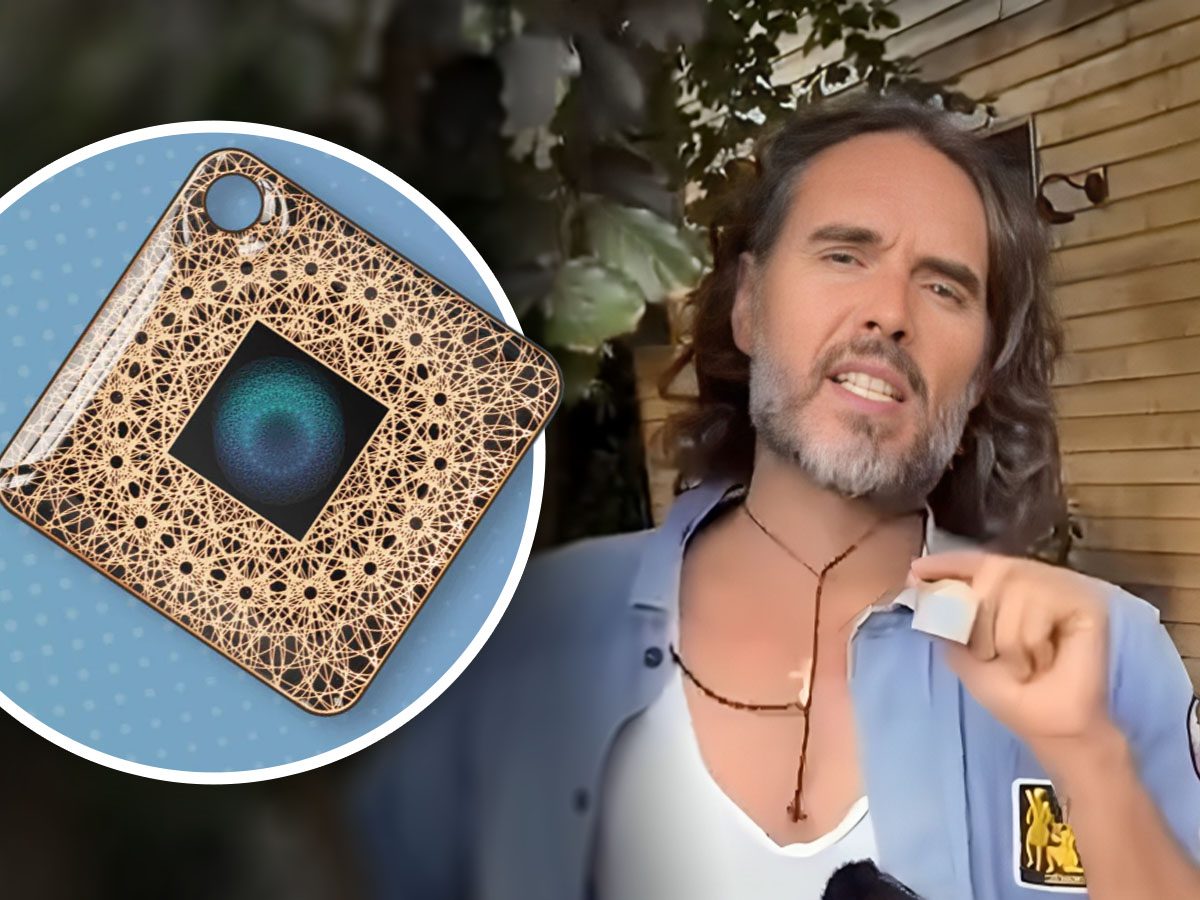
Russell Brand has stirred up controversy once again, this time by promoting a product that many find baffling: a $240 “magical amulet” designed to protect against “evil energies” and “corrupting signals,” including Wi-Fi and 5G.
Brand, a well-known actor, comedian, and most recently, Christian influencer, has found himself at the center of both praise and criticism after shifting his public persona from entertainer to spiritual guide. This dramatic shift came after a 2023 investigative report from Channel 4 and The Times that lead Brand to lean into promoting alternative products and spiritual concepts.
In a viral TikTok video, Brand is seen promoting an amulet sold by Aires Tech, a company that markets products claiming to protect users from harmful 5G radiation and electromagnetic frequencies. Brand, holding up the product, encourages his followers to purchase the Lifetune Flex amulet, priced at $239.99. He claims it protects places filled with “evil energies,” specifically citing airports as prime examples.
Brand explained, “As you know, airports are places full of Wi-Fi and all sorts of evil energies. Think of all the phones out there, all of the signals—corruptible and corrupting. Luckily, I wear this magical amulet from Aires Tech that keeps me safe from all of the various signals out there.”
His message has garnered mixed reactions online. While some express confusion over the spiritual claims made by Brand, others have taken to social media to mock the idea of a Christian influencer endorsing a product with roots in what many consider pseudo-science. One user sarcastically remarked, “Russell Brand, now a Christian, wears a ‘magic amulet.’ The Christians, of course, huge fans of magic.” Another wrote, “This is a sketch Russell Brand would’ve made 20 years ago to mock the kind of charlatan he has now become.”
For Christians, the promotion of products like this raises questions about discernment and the need for spiritual clarity in the face of popular figures like Brand. While Brand claims to be promoting wellness and spiritual protection, many believers might wonder whether such endorsements align with biblical teachings. Scripture warns against the allure of practices that mix faith with superstition or material objects as sources of spiritual protection.
As believers, we should trust in God’s protection and not in man-made items that claim mystical powers. Isaiah 31:1 reminds us, “Woe to those who go down to Egypt for help… but do not look to the Holy One of Israel, or seek help from the Lord.” Whether Brand’s promotion is genuine or part of his reinvention as a Christian influencer, Christians should carefully consider how this aligns with the principles of their faith.
While Brand continues to reinvent his public image, it remains to be seen how Christians and the broader public will respond to his efforts to mix spirituality, commerce, and faith in such unconventional ways.


